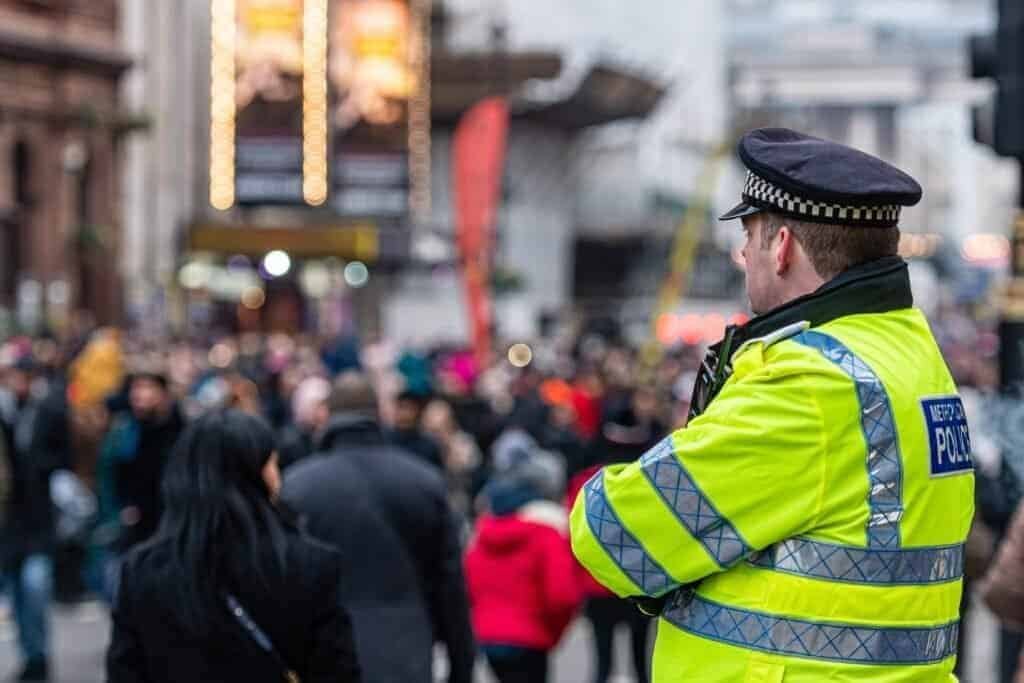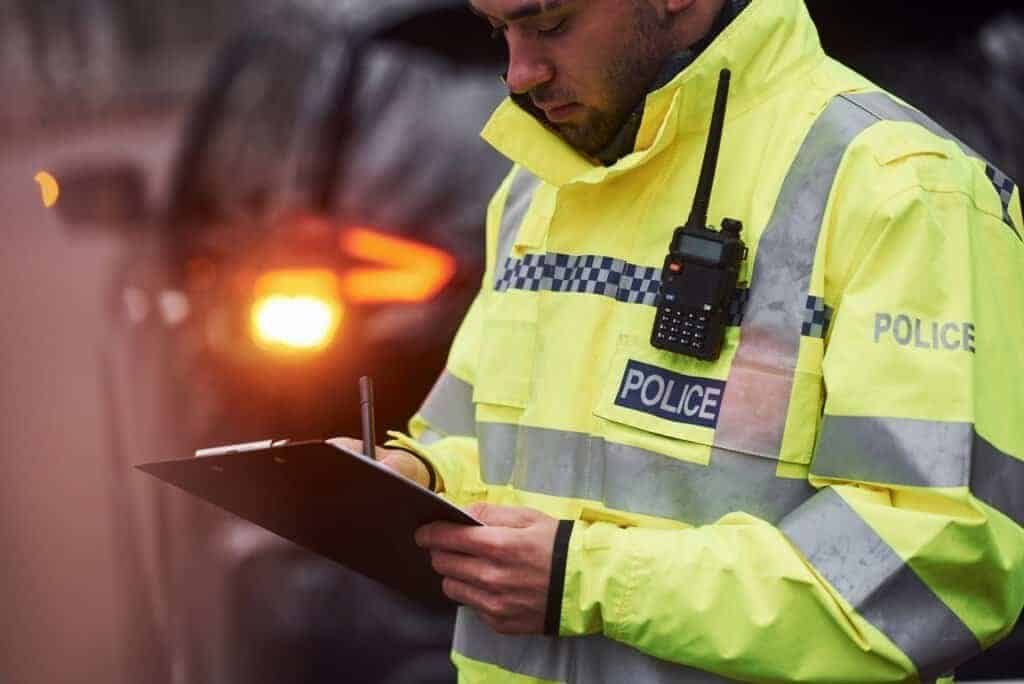Understanding Your Privacy: Can Police Disclose Who Reported You?

We may earn a small fee from the companies mentioned in this post.
When you’ve reported a crime or been involved in a police case, you might wonder, can police disclose who reported you? The straightforward answer is that police procedures and data protection laws typically protect the identity of informants and reporters. However, legal exceptions do exist. This article delves into when and how the police might reveal a reporter’s identity, what the legal boundaries are, and what you can do if you find yourself in this situation.
Key Takeaways – Can police disclose who reported you
Police are generally required to protect the anonymity of informants, but in certain serious situations they are legally obligated to disclose informant identities to prevent harm or when deemed necessary to protect individuals or society.
The handling of personal data, including witness information by the police is regulated by the Data Protection Act 2018 and UK GDPR, ensuring that any disclosure is relevant, proportionate, and necessary for law enforcement purposes with a legal basis as per data protection laws. It is crucial to keep this information up to date to ensure compliance and effectiveness.
Individuals have rights and legal recourses under the Human Rights Act and data protection laws, such as the ability to make Subject Access Requests to the police for personal data held about them and to take legal action if their identity is unlawfully disclosed.
Confidential Informants and Anonymity
Confidential informants have a significant role in criminal investigations, often providing critical information that can lead to case breakthroughs. Yet, the Common Law Police Disclosure (CLPD) typically safeguards these informants’ identities. The disclosure of informant information must be pertinent and proportionate to the necessity of safeguarding individuals or society as a whole. It is also important to update your browser for security reasons to ensure proper site functionality and access to all features.
Nevertheless, the veil of confidentiality does not always hold. There are instances where the law mandates disclosure. This legal obligation arises in certain circumstances, such as:
the prevention or detection of a serious crime
the prevention of serious harm to another person
when it is deemed necessary to protect individuals or society.
In the majority of situations, common law requires seeking explicit consent before processing criminal offence data and disclosing it to the police. However, there are circumstances where seeking consent may not be appropriate, such as when doing so would cause harm to the patient, service user, or others.
The Limits of Confidentiality in Police Reports

Though informants’ anonymity is generally protected, one must understand that police confidentiality isn’t absolute. Disclosure under common law is most likely to occur in cases involving allegations of a sexual nature. It is triggered following an arrest or voluntary interview for a recordable offence, or following the charge for a recordable offence, which may involve accessing criminal records as part of a criminal investigation.
The obligation of the police to reveal relevant and proportionate sensitive information, particularly to an employer, is covered by common law disclosure. The significance of seeking the individual’s input before disclosure is underscored by the Police Act 1997 and is an important aspect of the criminal justice system.
Furthermore, when relevant and proportionate to the circumstances, disclosure under the Common Law Police Disclosure (CLPD) is considered appropriate. This falls within the scope of the police’s common law disclosure power, which can be crucial during a police investigation. The responsibility to authorise any disclosure of pertinent information falls on Chief Officers, and individuals have the opportunity to contest the disclosure if invited by the police when it is deemed feasible.
Understanding Data Protection Law and Personal Privacy
Regulating the use and sharing of personal data, including witness information, is a key role of data protection laws. The Data Protection Act 2018 and the UK General Data Protection Regulation (UK GDPR) are the primary legislative regulations governing personal data utilisation in the UK.
There exist six legal bases for the sharing of personal data between police and local authorities, and the most suitable one depends on the specific circumstances of each individual case. The police are permitted to disclose personal data when it is necessary for law enforcement purposes and when there is a legal basis under Article 6 of the UK GDPR.
Nonetheless, such a disclosure must conform to data protection duties and obligations. This encompasses fairness, accuracy, and security, while being limited to what is essential for law enforcement purposes.
Police Protocols on Disclosing Witness Information

To protect the privacy and safety of involved individuals, the police follow protocols for the disclosure of witness information. The standard procedures involve:
The meticulous handling of depositions and transcripts of evidence
Consistent recording of what the witness observed
The inclusion of any details that may further investigations or provide assistance
Ultimately, these protocols can lead to criminal penalties for the accused.
These procedures are governed by legislations such as the Police Act 1997 and the Safeguarding Vulnerable Groups Act 2006, which provide powers related to the disclosure of witness information. The Safeguarding Vulnerable Groups Act 2006, while not specifically mentioning witness information disclosure, does influence the handling of disclosures in family court proceedings and criminal investigations.
Your Rights Under the Human Rights Act
The Human Rights Act endows individuals with certain rights, one of them being the right to privacy. However, this is a qualified right, meaning it may be subject to interference under specific circumstances as outlined in the Act. In cases where there is a concern about the handling of personal data, individuals can seek guidance from the Information Commissioner’s Office (ICO).

It is worth noting that police forces are permitted to encroach upon the right to privacy under specific circumstances sanctioned by the Human Rights Act, particularly when investigating criminal offences. Additionally, Article 14 of the Human Rights Act prohibits public authorities, including the police, from engaging in discrimination against individuals as they exercise specific rights under the European Convention on Human Rights.
If an individual believes that their rights under Article 14 have been violated by the police, it is advisable to seek legal counsel in order to comprehend the available options and remedies.
How to Handle Concerns About Being Identified as a Reporter
The possibility of being identified can pose a daunting prospect for journalists and reporters. However, there are legal protections in place. Journalists are entitled to withhold the identity of their sources in numerous instances, a privilege that is supported by the jurisprudence of the European Court of Human Rights. Furthermore, legislation prohibits authorities, including the judiciary, from coercing journalists to disclose an anonymous source for a news story.
Preserving online anonymity is crucial in the digital era. Reporters can uphold online anonymity by utilising privacy tools such as Virtual Private Networks (VPNs) and the Tor browser. Adhering to guidelines from organisations like Reporters Without Borders can also bolster online privacy and source confidentiality. Additionally, using an updated browser to view content securely is important to prevent potential vulnerabilities.
Journalists can safeguard their anonymity by:
Exercising prudence
Educating their sources on security measures
Arranging discreet meetings
Making careful phone calls
Securing their messages
It is essential to never presume that a source consents to being identified and to comprehend the legal obligations associated with confidential sources.
Learn how to protect yourself from Facebook Marketplace scams by reading our informative Article.
Requesting Information: Subject Access Requests
Individuals can request information held about them by the police through a subject access request (SAR). A SAR entails the entitlement to inquire with an organisation about the utilisation or retention of one’s personal data, as well as to solicit duplicates of said personal data. This encompasses information stored on the Police National Computer (PNC).

The police are generally expected to provide a response to a SAR within one month. In cases where the request is intricate or involves multiple requests, the response may take up to three months. However, a SAR can be rejected by the police if an exemption is applicable, if the request is repeated within a reasonable period, or if it is considered unfounded or unreasonable.
If one is dissatisfied with how their SAR was handled, they can lodge a data protection complaint against the police.
Legal Recourse if Your Identity is Unlawfully Disclosed
Should your identity be unlawfully disclosed, you may have legal remedies. You can pursue legal action through the court in cases where there is a threat of disclosure, and it is advisable to consider legal principles related to the collection and disclosure of personal data.

You can also lodge a complaint with the Information Commissioner’s Office (ICO) by following these steps:
Directly address the organisation involved and allow them a one-month period to provide a response.
If the issue remains unresolved, request an internal review.
The Data Protection Act 2018 and the Digital Economy Act 2017 offer legal protection against the unauthorized disclosure of personal identity.
Should your identity be unlawfully disclosed, seeking legal counsel is advisable. You may also be entitled to claim damages for injury to feelings and loss of the right to control personal information.
In cases involving the leaking of confidential or sensitive documents, those responsible may be subject to charges of misconduct in a public office.
When Disclosure is Necessary: Protecting Public Security
Although personal information’s protection is crucial, there are instances when public security necessitates disclosure. Law enforcement agencies may determine the disclosure of witness information based on established guidelines and best practices. These may encompass:
Providing pertinent evidence to prosecutors
Sharing information in a manner that ensures adequate security
Treating witness evidence and statements in a manner consistent with statements made to the police.
The Common Law Police Disclosure (CLPD) power is utilised to facilitate the consideration of risk management measures by a third party, such as an employer and/or regulatory body.
Contacting a Data Protection Officer for Clarity
Should you still have questions or require clarity, a Data Protection Officer can be contacted. Their responsibilities include assisting in monitoring internal compliance, providing information and guidance on data protection obligations, and offering advice on data protection matters. Their tasks include ensuring privacy and confidentiality by promoting compliance with data protection legislation and safeguarding data subjects’ rights.
A Data Protection Officer (DPO) performs the following tasks:
Assessing whether personal information can be disclosed by verifying the existence of a legal basis for the disclosure and ensuring compliance with the data protection principles.
Offering information about the legal justification for sharing personal data with law enforcement agencies.
Overseeing internal adherence to data protection regulations.
Providing guidance on data protection responsibilities.
You can contact a Data Protection Officer at the police department by emailing Darren Curtis at DataProtectionOfficer@met.police.uk.
Next Steps and Verification
After submitting a report to the police, understanding the subsequent steps and the verification process is crucial. Once you have made a report, the police will typically begin by acknowledging receipt of your report. This initial step ensures that your report has been logged into their system.
Summary
In conclusion, understanding your privacy rights regarding police disclosure of your information is crucial in today’s interconnected world. From the rights of confidential informants, to the limits of confidentiality in police reports, to the data protection laws that regulate personal privacy, and your rights under the Human Rights Act—each facet is integral to protect your personal information. If in doubt, reach out to a Data Protection Officer for clarity. Knowledge is power, and knowing your rights empowers you to safeguard your privacy better.
Frequently Asked Questions
Can you find out who has reported you to the police?
In the United Kingdom, the identity of a person who has reported someone to the police is generally kept confidential. This confidentiality is crucial for several reasons such as:
Protection of the Reporter: To protect the person who made the report from potential retaliation or harm, especially in cases involving sensitive or potentially dangerous situations.
Encouraging Reporting: Confidentiality encourages individuals to report crimes or suspicious activities without fear of being identified and facing repercussions.
Integrity of Investigations: Keeping the reporter’s identity confidential helps maintain the integrity of the police investigation. Revealing the identity could compromise the investigation or lead to tampering with evidence or witnesses.
However, there are exceptions where the identity of the reporter might be disclosed, these include:
Legal Proceedings: In some cases, during a trial or legal proceedings, the identity of the person who reported the incident might be revealed, particularly if they are required to testify as a witness.
Consent: If the person who made the report consents to their identity being disclosed.
Public Interest: In rare cases, if it’s deemed in the public interest to disclose the identity.
Are police allowed to disclose information?
Yes, police are allowed to disclose information in certain circumstances, such as for law enforcement purposes or preventing unlawful acts, as long as it is necessary and in the public interest.
What happens when you report someone to the police?
When you report someone to the police, they will begin an investigation, collecting information from you and starting the process of gathering evidence. You may be assigned an investigating officer as your contact during the investigation, who will keep you updated and guide you through giving a statement. It’s important to note that police investigations can take a significant amount of time before any updates are provided.
Do police have to tell you if they are recording?
Under data protection legislation, officers must inform people that they’re being filmed, unless the situation means it’s not possible. You’ll know you’re being recorded when the camera has flashing red lights in the center of it. Officers don’t have to get your consent to be filmed.
What is a Subject Access Request?
A Subject Access Request (SAR) allows you to request information from an organisation about how they use and store your personal data, and to obtain copies of that data. It’s a way to understand and access your personal information held by an organisation.
Useful Reference Websites
Information Commissioner’s Office (ICO) – ico.org.uk
As the UK’s independent authority set up to uphold information rights, the ICO provides detailed guidance on data protection and privacy laws, which can shed light on issues related to privacy and police disclosures.
Liberty – libertyhumanrights.org.uk
Liberty is a human rights organization that offers insights into civil liberties in the UK, including privacy rights and interactions with law enforcement.
The Law Society – lawsociety.org.uk
As the representative body for solicitors in England and Wales, The Law Society provides resources and articles on legal topics, including confidentiality and privacy in legal proceedings.
Citizens Advice – citizensadvice.org.uk
Offers practical, independent, and confidential advice. Their website includes information on dealing with the police, your rights, and how to handle personal information disclosures.
UK Government – Justice System – gov.uk
The official UK government website provides information on the justice system, including policies and procedures followed by police and other law enforcement agencies. It’s a reliable source for understanding the legal framework regarding privacy and police reporting.
With over three decades of experience in the heart of London’s financial sector, I have dedicated my career to the pursuit of robust cybersecurity practices and IT leadership. As a Certified Information Systems Security Professional (CISSP), Certified Information Security Manager (CISM), Certified Chief Information Security Officer (C|CISO), Certified Ethical Hacker (CEH), and Computer Hacking Forensic Investigator (CHFI), I bring a wealth of knowledge and expertise to the table.
My journey in the field of cybersecurity has not only been about personal growth but also about sharing my insights with others. As an international speaker, I have had the privilege of addressing audiences worldwide, discussing the importance of cybersecurity in today’s digital age. My passion for knowledge sharing extends to my work as an author and blogger, where I delve into the complexities of cybersecurity, offering practical advice and thought leadership.
In my role as a CISO and Head of IT, I have overseen the development and implementation of comprehensive information security and IT strategies. My focus has always been on creating resilient systems capable of withstanding the evolving landscape of cyber threats.
My Master’s degree in Cybersecurity has provided a solid academic foundation, which, when combined with my practical experience, allows me to approach cybersecurity from a holistic perspective.
I am always open to connecting with other professionals in the field, sharing knowledge, and exploring new opportunities. Let’s secure the digital world together.

